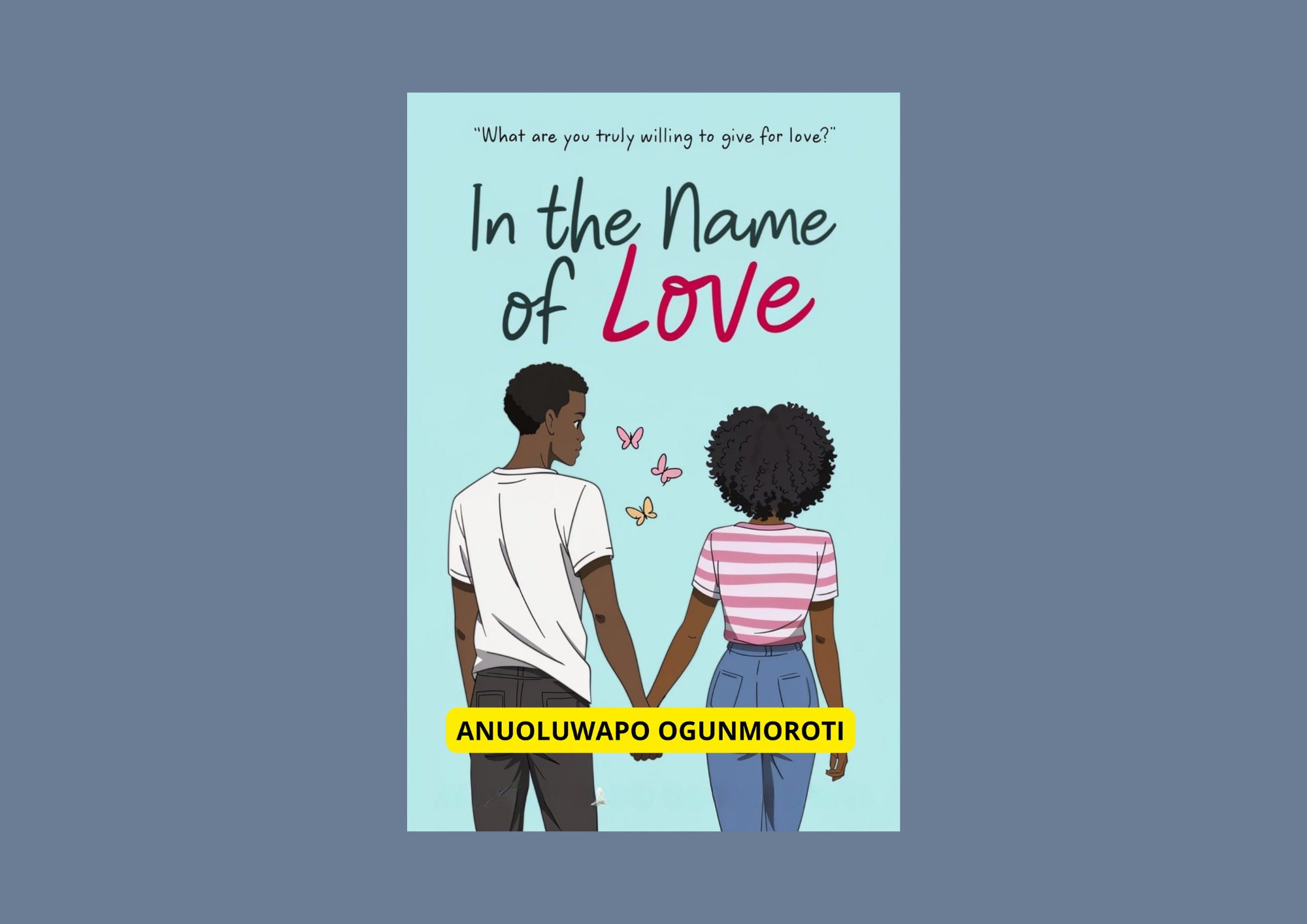The beginning of every great love story starts with the meeting of a boy and a girl. Dostoevsky says love in action is a harsh and dreadful thing compared with love in dreams. Perhaps that is the kind of love we are introduced to in the novel. A fleeting love observed in feverish haste. Anuoluwapo Ogunmoroti’s YA romance novel opens with Koriola going to auditions and hoping for her big break. Acting is first her mother’s dream, then hers. Koriola appears to be a young woman hiding her naivete under a thin cloak of self-confidence. She’s not necessarily in search of love. It finds her or so the reader assumes when she finds Griffin sitting on the hood of her car.
She eventually gets the role, and an air of expectancy begins to build itself in what might happen between her and Griffin. Anticipation makes the reader run his eyes faster than the plot can carry him. This is when the seeds of affection begin to form roots and germinate. Koriola and Griffin become co-actors. They also happen to play a couple in the script. It is like fertilizer for the seeds, a little nudge from the unseen. They steal glances, and exchange subtle innuendos. Steamy poems in their play are barely given screen time. The author is perhaps as bashful as her characters who try to quell blushes and disguise smiles.
Affection between Koriola and Griffin is easy and slow. The right ingredients for a budding romance have been provided. Anticipation is built. The cues are in place. But somehow, it appears to be all it is. Rehearsals hold appeal for a hot minute and the next, anticipation begins to fall because it seems like no one would go out of their way to get the other’s attention. Perhaps Ogunmoroti’s objective is to take us through what romance in realism feels like. The uncertainty. Individuals having other parts of their lives to cater to without their romantic interest in the picture.
Romantic love is foreign to Kori, not because she is not capable of loving but because she has not experienced it before. Griffin seems like the “bad guy”. According to romance conventions, he is charged with the responsibility to make things happen between them, but he also barely signifies interest. Might this be the image of a young adult in love? Steady, observing, afraid to go over the edge. Moroti paints an image of what affection in a work environment looks like between today’s youth. Perhaps, it is this height of verisimilitude that draws the plot so carefully away from what is usually expected of a romance novel.
Kori’s relationship with her mother and brother is a kind anyone would wish to covet. She has a steady support system and finds more from her new friends at work, Jacob and Raven. Even they recognize a certain spark between Kori and Griffin. The poems come with budding intensity. The next poem seems to be more intense than the last, but the actors barely get into any action. While the story continues to draw out, one only hopes that someday they would find themselves in love and aching to be loved in return.
The characters in the work do not have a lot of depth neither are they given time to develop. The plot focuses on Kori with Griffin at rehearsals and Kori with her mom at home. Neither part delve into the minds of each character, questioning the why behind their actions and finding reason in their convictions. The novel’s length does not pardon this little flaw rather it compliments it. The reader is left parched and dry when there is potential for a flowing spring. The moment when they get to act their play in the theatre is the big finale. It finally happens and it is somewhat underwhelming. The finish of every great love story ends this way. Boy gets girl.
So far, Griffin has not done a lot to get Koriola except call a truce on trolling her height. At their final rehearsal, he saves her from getting hit by a bus and carries her bridal style to his car. But this is the stuff fantasies are made of. After the finale, Griffin finally makes his romantic intentions known to Kori and she turns him down. The anticipation dies a slow, torturous death. But the author is not done just yet. In the epilogue, they end up on a date two months later and we have no idea how. Then she gets accepted into the Hollywood School of Theatre Arts and this means long-distance. Perhaps, this is Moroti’s way of making the lead character get everything she wants.
It is a subtle mention that the female character does not have to get one to give up another. As Elizabeth Bennet would not put down her intellect for Mr. Darcy in Austen’s Pride and Prejudice, so it would seem unfair to have a female character in a modern society characterised by feminism and a constant appeasing by inclusion to not have opportunity lined for her with the man rightfully by her side. One would recommend that the plot has a more solid base. The plot lacks enough sociocultural cues to determine if the characters are Nigerians in Nigeria or Nigerians in diaspora. Choice of language, interaction, food, setting, even naming inform these cues and elevates the overall bearing of the novel.
Anuoluwapo Ogunmoroti’s In the Name of Love might not be your regular love story, but it earns a spot in the romance genre.
Michael Chiedoziem Chukwudera
Michael Chiedoziem Chukwudera is a writer, community builder, and entrepreneur. His works have appeared in Jalada Africa, The Republic, OkayAfrica, Havik, and elsewhere. He is the director of Umuofia Arts and Books Festival, and the author of the novel Loss Is an Aftertaste of Memories (Mmuta Books, 2024).


